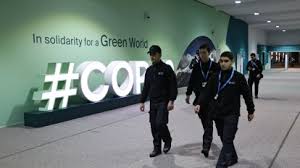
India Rejects $300 Billion COP29 Climate Finance Deal, Calling it an ‘Optical Illusion’
In a bold move that has stirred global attention, India has rejected the $300 billion climate finance proposal presented at the COP29 summit. Calling it an “optical illusion,” Indian representatives argued that the deal fails to address the core issues of equity, transparency, and historical responsibility in climate finance.
The COP29 Proposal: A Quick Overview
The $300 billion climate finance proposal was designed to support developing nations in mitigating and adapting to the effects of climate change. It included provisions for renewable energy projects, climate-resilient infrastructure, and efforts to curb emissions globally. However, the funding mechanism raised concerns over its reliance on loans and private sector investments rather than grants, potentially adding debt burdens to vulnerable nations.
India’s Stance on Climate Finance
India’s sharp criticism of the deal was rooted in its longstanding position on climate equity. For years, India and other developing nations have emphasized that industrialized countries, which have historically contributed the most to climate change, should bear the brunt of financing climate action.
At the summit, Indian officials highlighted three main concerns with the proposal:
- Lack of Adequate Grants: Much of the $300 billion was structured as loans, which India argued would exacerbate the financial struggles of developing nations rather than alleviate them.
- Unmet Historical Commitments: India pointed out that developed nations have yet to fulfill their $100 billion annual climate finance commitment, agreed upon in 2009.
- Opaque Mechanisms: Questions were raised about how the funds would be distributed and whether they would genuinely benefit the countries that need them the most.
A Call for True Climate Justice
India has called for a paradigm shift in how climate finance is structured. The country advocates for a transparent mechanism with a clear focus on grants over loans and insists on accountability for developed nations to meet their financial obligations.
Speaking at the summit, India’s environment minister stated, “This deal is nothing more than an optical illusion. It appears generous on paper, but its execution would place an unfair burden on developing nations. Climate justice cannot be achieved through half-measures.”
Mixed Reactions from the Global Community
India’s rejection of the deal has received mixed responses.
- Support from Developing Nations: Many nations in the Global South echoed India’s concerns, emphasizing the need for fair and just climate finance mechanisms.
- Criticism from Developed Nations: Representatives from industrialized countries expressed disappointment, arguing that the proposal was a significant step forward in addressing climate challenges.
Looking Ahead: What’s Next for COP29?
The rejection has added urgency to negotiations as the summit seeks a consensus on climate finance. Developing nations are likely to push harder for a more equitable solution, while developed countries will need to address criticisms of their financial commitments.
India’s Role in Global Climate Leadership
India’s position reflects its growing influence as a voice for the Global South in climate negotiations. With ambitious renewable energy targets and active participation in international climate initiatives, India continues to balance its developmental priorities with its climate responsibilities.
Conclusion
The debate surrounding the $300 billion COP29 climate finance deal underscores the complexities of global climate action. As the world grapples with the urgent need to combat climate change, ensuring fairness and equity in climate finance will remain a cornerstone of the discussions. India’s rejection serves as a powerful reminder that meaningful solutions require more than surface-level commitments—they demand genuine accountability and collaboration.
